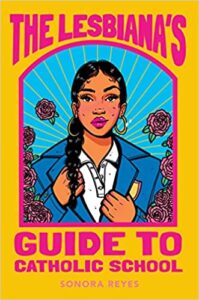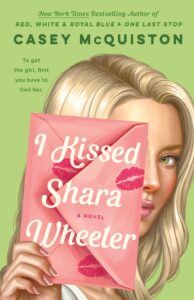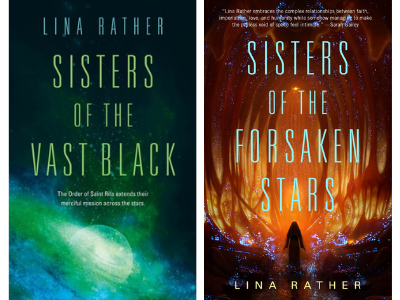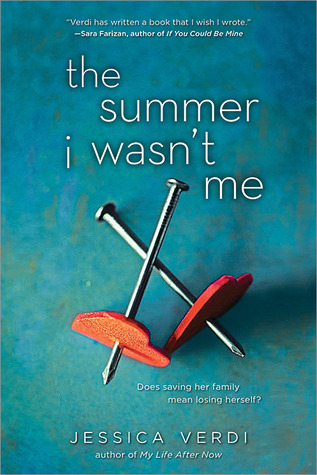The Lesbiana’s Guide to Catholic School had been on my reading list for way too long and I am so glad I finally opened it up to celebrate National Hispanic Heritage Month (September 15-October 15)! The sweet characters, nuanced coming-of-age and coming out story, and will-they-or-won’t-they first F/F romance had me hooked from the first page.
Ever since Yamilet (Yami) was outed by her ex-best friend last year, she has been committed to acting as straight as possible: don’t hug your girlfriends too long, talk about crushes on boys—you know the drill. Her hope is that just maybe that acting will help her be straight, since she’s confident her religious mom would kick her out if she’s gay. It is both heartbreaking and endearing following Yami’s very gay thoughts as she tries oh so hard to be straight. She watches her every move, hoping they’re not too gay, and she is definitely not spending a lot of her time thinking about Bo, the only out girl (and one of the few other people of color as an adopted Chinese American) in her Catholic School.
I’m going to take a gander and guess that you don’t choose YA coming out stories for the high stakes plot. If you’re anything like me, you open up this kind of book for another sweet example of someone living into their truth and being better for it. Even if the end result of a rom-com is expected, it’s the journey to that queer happily ever after that is so fulfilling. I never get sick of honest yet positive coming out stories and this one from a queer Mexican American girl navigating Catholic school and a religious family is especially important to be told and read.
The awkward growing up moments made me laugh out loud. The found family relationships made my heart swell. The biological family love and growth made me tear up. The very real homophobic reactions and religious trauma made me cringe. The understanding and patient romance made me swoon. And the journey of self-love and self-confidence was contagious, reminding me all over again of the freedom of getting brave enough to be you out loud. This was a beautiful read through and through—I highly recommend it!
Content warnings: racism, homophobia, immigration, suicidal ideation and hospitalization of a character
Natalie (she/her) is honestly shocked to find herself as a voracious reader these days—that certainly wasn’t the case until she discovered the amazing world of queer books! Now she’s always devouring at least one book, as long as it’s gay. She will be forever grateful for how queer characters kept her company through her own #gaypanic and now on the other side of that, she loves soaking up queer pasts, presents and futures across all genres. Find more reviews on her Bookstagram!





